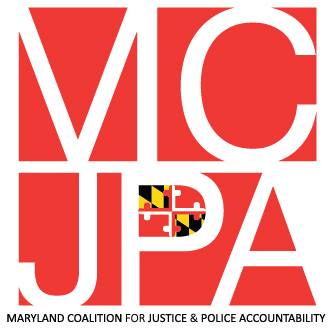Exclusionary Rule Would Ban Police from Using Evidence They Obtain Illegally
ANNAPOLIS, MD –The Maryland Coalition for Justice and Police Accountability (MCJPA) calls on leaders in the General Assembly to bring up for a vote in the Senate Judicial Proceedings Committee and then pass House Bill 1071 with a clear “exclusionary rule” that would ban police from using evidence obtained from a stop or search based solely on the odor of marijuana. HB 1071 prohibits police from conducting stops and searches based on the odor of marijuana. But without a clear “exclusionary rule,” the bill will not effectively deter police from violating this important new rule of law.
What is at stake here is clear: police in Maryland are four times more likely to search Black drivers and their vehicles during traffic stops than white drivers, and without HB 1071 and a strong exclusionary rule, police will continue to rely on the legal odor of cannabis to justify such searches and face no consequences for doing so.
“Our elected officials must pass a clear exclusionary rule so that police can’t use evidence they collect illegally from stops and searches based on the supposed smell of marijuana,” said Dawn Dalton, a directly impacted mother and leader with the Maryland Coalition for Justice and Police Accountability. “It’s wrong to trick Black Marylanders into thinking that marijuana is legal for them to use, too, and then still subject them to racial profiling by police who can use the alleged smell of marijuana to stop and search them. It's time for us to get this right so that our young Black people can feel safe just like their young white people feel safe.” Dawn Dalton, Just Us Initiative, and directly impacted mother.
With less than a week left in the 2023 legislative session, MCJPA is pushing for the passage of a stronger version of HB 1071, which passed the House and is now being considered in the Senate. The bill must fulfill its intended purpose: to reduce unnecessary police interactions and eliminate one of the tools police use to justify racial profiling. To achieve that goal – and take a strong step towards racial justice – the exclusionary rule must be clearly added. That rule would explicitly exclude evidence that police obtained illegally so that they are deterred from conducting unlawful stops and searches based on the odor of marijuana.
Maryland Courts have said that unless the exclusionary rule is explicitly stated in the legislation, it does not automatically apply. That is why for HB 1071 to adequately protect the rights of Black and Brown Marylanders, this bill must explicitly state the exclusionary rule.
“The use of the smell of cannabis by law enforcement as a public safety strategy will only lead to more Black people being sucked into the criminal justice system, and vulnerable to police abuse, while remaining ineffective at addressing public safety,” said Dayvon Love, director of Public Policy with Leaders of a Beautiful Struggle.
Learn more at the MCJPA website.
###
Related Content

Commentary: The smell of marijuana and the stain of racism
Stay Informed
Sign up to be the first to hear about how to take action.
By completing this form, I agree to receive occasional emails per the terms of the ACLU’s privacy statement.
By completing this form, I agree to receive occasional emails per the terms of the ACLU’s privacy statement.



